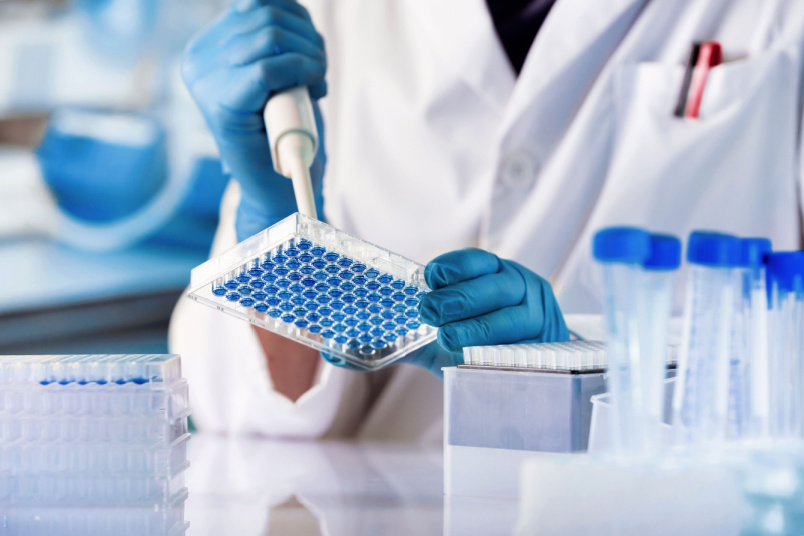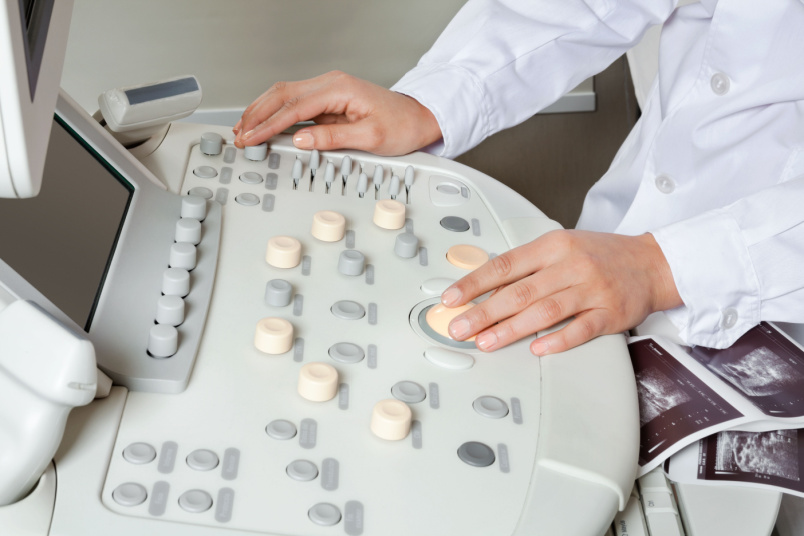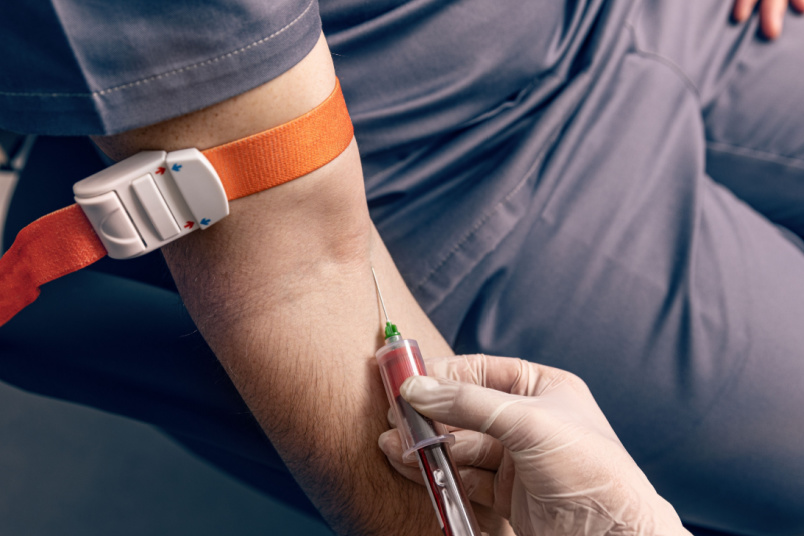Blog >Fertility Tests for Men: Options and How They Work
Fertility Tests for Men: Options and How They Work

Fertility tests for men are essential diagnostic tools to assess their reproductive health and determine their ability to father children. These tests are designed to evaluate various aspects of male fertility, including sperm quality, quantity, and functionality, as well as underlying factors that might affect fertility. For couples experiencing difficulties in conceiving, these tests help identify underlying problems and guide treatment options, ultimately enhancing the prospects of parenthood. In this blog, we will discuss the different fertility tests available for men and how they work, covering topics such as semen analysis, hormonal tests, genetic tests, and imaging studies.
Male Fertility Tests Semen Analysis

Semen analysis is one of the most common and fundamental tests to assess male fertility. It provides valuable information about the quantity, quality, and overall health of sperm.
How it works?
- Collection: The patient is required to provide a semen sample. This sample is collected through masturbation into a sterile container, preferably after a period of sexual abstinence (typically 2-5 days) to ensure accurate sperm parameters.
- Liquefaction: After ejaculation, the semen typically undergoes a process of liquefaction, allowing it to become more fluid. This takes about 20-30 minutes.
- Analysis: A trained laboratory technician or specialist examines the semen under a microscope. The following parameters are evaluated including sperm count, motility (movement), morphology (shape), volume, and viscosity.
- Sperm Count: It measures the number of sperms in a volume of semen. A healthy sperm count is typically over 15 million sperm per millilitre (mL) of semen.
- Motility: It assesses the percentage of sperm that can move effectively. Good motility is crucial for sperm to reach and fertilise an egg.
- Morphology: It examines the shape and structure of sperm. Normal sperm should have a well-defined structure, including a distinct head and tail.
- Volume: It determines the amount of semen produced during an ejaculation. A normal volume is usually 1.5 to 5 mL.
- Viscosity: It assesses the thickness of the semen. High viscosity can impede sperm movement.
- Results: Based on the analysis, the results are provided to the patient and their healthcare provider. Abnormalities in any of these parameters can indicate fertility issues.
Hormonal Tests
Hormonal tests can help identify hormonal imbalances in the blood that may affect sperm production.
Common hormonal tests for male fertility include:
- Testosterone: Testosterone is the primary male sex hormone. Low levels of testosterone can impact sperm production.
- Luteinizing Hormone (LH) and Follicle Stimulating Hormone (FSH): LH and FSH are pituitary hormones that play a crucial role in regulating the testes’ production of sperm and testosterone. Abnormal levels of these hormones in the blood can indicate potential issues.
- Prolactin: Elevated prolactin levels in the blood can lead to reduced testosterone production, affecting sperm production.
- Thyroid Hormones: Thyroid hormones (T3 and T4) can influence overall health and metabolism. Abnormal thyroid function can impact fertility.
- Estradiol: High levels of estradiol, a form of estrogen, can affect sperm production.
Genetic Tests

Genetic tests are used to identify genetic factors that may impact male fertility. These tests can uncover inherited conditions that affect sperm production or function.
Common genetic tests include:
- Karyotype Analysis: This test examines an individual’s chromosomes to detect abnormalities such as Klinefelter’s syndrome (extra X chromosome), which can lead to reduced fertility.
- Y-chromosome Microdeletion Analysis: Some deletions in the Y chromosome can cause fertility issues. This test looks for missing regions on the Y chromosome.
- Cystic Fibrosis Carrier Testing: Cystic fibrosis carriers may have congenital absence of the vas deferens (CAVD), which affects sperm transport. Genetic testing can identify carrier status.
- Single Nucleotide Polymorphism (SNP) Analysis: This is a more advanced genetic test that looks for specific genetic variations associated with male infertility.
Imaging Studies

Imaging studies are sometimes necessary to assess the anatomy of the male reproductive system and identify any structural abnormalities that may affect fertility. These studies include:
- Ultrasound: Transrectal or scrotal ultrasound can provide detailed images of the testes, epididymis, and other reproductive structures. It can identify conditions such as varicoceles (dilated veins in the scrotum) or structural abnormalities.
- Magnetic Resonance Imaging (MRI): MRI may be used in cases where more detailed imaging is needed to evaluate the male reproductive system.
- Vasography: This procedure involves injecting contrast material into the vas deferens to check for any blockages or obstructions in the male reproductive tract.
Additional Tests

Various factors can influence fertility. Additional testing and evaluation may be required to identify the specific cause of fertility issues. These tests can include:
- Anti-sperm Antibody Testing: Anti-sperm antibodies can affect sperm motility and function. Blood tests can determine if these antibodies are present.
- Fructose Test: This test assesses the presence of fructose in semen, which is normally produced by the seminal vesicles. A lack of fructose may indicate a blockage or absence of the vas deferens.
- Post-Ejaculatory Urine Analysis: This test evaluates whether sperm are present in the urine after ejaculation, which may indicate retrograde ejaculation, where sperm is redirected into the bladder instead of exiting through the urethra.
In short, male fertility tests are invaluable tools in evaluating and addressing reproductive health. They provide essential insights into a man’s ability to conceive and fertility issues. Based on the results of these tests, couples can make informed decisions and pursue appropriate treatments when necessary. Timely testing and intervention can significantly improve the chances of achieving a successful pregnancy, making male fertility tests a vital step in the journey toward parenthood.
AndroNeo, @NU Hospitals in Bangalore, India is a pre-eminent choice for addressing all fertility issues. Renowned for its exceptional medical staff, advanced facilities, and commitment to comprehensive fertility solutions, it consistently delivers outstanding care. From pioneering treatments to compassionate support, AndroNeo at NU Hospitals is a top choice for individuals and couples seeking solutions to their fertility concerns.
Recent Post
- Penile Implant Surgery: A Permanent Solution to Erectile Dysfunction from the expert Andrologist in Bangalore
- Testosterone – why is it so important
- Bengaluru’s Leading Expert in Andrology (Male Fertility and Sexual Health) and Prosthetic Urology – Dr Pramod Krishnappa
- Varicocele – The Hidden Cause of Male Infertility
- No Sperm and Its Link to Genetic Factors: An Exploratory Guide
Related Post
Penile Implant Surgery: A Permanent Solution to Erectile Dysfunction from the expert Andrologist in Bangalore
Penile Implant Surgery: A Permanent Solution to Erectile Dysfunction from the expert Andrologist in Bangalore Living with erectile dysfunction (ED) is not only a physical
Testosterone – why is it so important
Testosterone – why is it so important Testosterone hormone is one of the most important hormones in our body, it is primarily a male hormone
Bengaluru’s Leading Expert in Andrology (Male Fertility and Sexual Health) and Prosthetic Urology – Dr Pramod Krishnappa
Bengaluru’s Leading Expert in Andrology (Male Fertility and Sexual Health) and Prosthetic Urology – Dr Pramod Krishnappa Overview Dr. Pramod Krishnappa is an exceptional Andrology
Varicocele – The Hidden Cause of Male Infertility
Varicocele_ The Hidden Cause of Male Infertility Infertility in men is a problem for millions of couples around the world, and one of the common
No Sperm and Its Link to Genetic Factors: An Exploratory Guide
No Sperm and Its Link to Genetic Factors: An Exploratory Guide Azoospermia, a leading cause of male infertility, occurs when a man’s ejaculate (semen) does
Penile Implant For Erectile Dysfunction: Preparation, During & After Surgery
Penile Implant For Erectile Dysfunction: Preparation, During & After Surgery A penile implant, also called a penile prosthesis, is a treatment method used to treat
Author: Dr. Pramod Krishnappa

